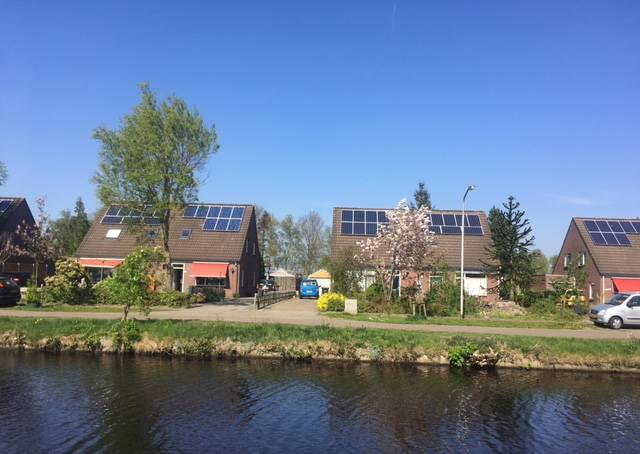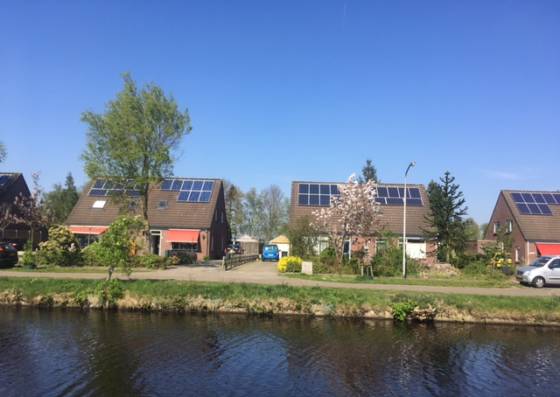Partner content
Going solar? Here are some things to think about


Some one million households in the Netherlands now have solar panels on their roof and solar energy is an increasingly important part of the Dutch energy mix. If you have been thinking about installing solar panels on your home, here are some things to think about.
The cost
The cost of installing solar panels on your roof depends on a number of factors: the number of panels, the type, the transformer (omvormer) you choose and the mounts (zonnepanelen montagemateriaal) that fix them to your roof. Expect to pay roughly €4,000 to €5,000 for ten solar panels, excluding btw. Most energy companies also offer a comparison service where you can check out the cost of solar versus regular grid electricity.
A solar panel on every roof?
Not all types of roof are suitable for solar panels, and if you live in a listed building you may not be allowed to install them either. A roof with a gradient of 35 degrees offers the best performance, but steeper and flatter roofs are also suitable. South facing roofs are best, but even a north facing roof can be an option, as long as the length of time it takes to earn back your investment is not an issue. An installation such as the Esdec mounting systems can be used on all types of flat and pitched (schuin dak) roofs and does not require drilling into the roof itself.
Solar panels need more than a roof
You also need to have a suitable location for the transformer – the equipment does not like to get too hot, for example. The shorter the cables from the panels to the transformer, the less energy you will use as well. Remember too, that the panels themselves need to be earthed.
Financial help
Cheap loans and subsidies aimed at encouraging the switch to solar panels have been one reason why more people are opting to make the switch to green energy. There are no national schemes, but some local authorities offer special deals. As a home owner, or member of a home owners association (VVE) you can also take out a cheap loan to buy solar panels. You can also request a refund on the tax (btw) that you pay over the cost.
Giving back to the grid
At the moment, electricity that you produce on your roof and which is fed back into the national grid is deducted from your own household energy bill. From 2023 this system will gradually be phased out and instead you will be paid directly for the energy you produce.
The government has said that phasing out the deduction will not impact on the length of time it takes to earn back solar panels but you may also have to install a new electricity meter to deal with the changes. You can, of course, think about installing batteries so you can keep more of the energy you produce for yourself or use smart equipment so that, for example, you use the washing machine when the sun shines.
Rent or buy
If the size of the investment puts you off – and remember, according to the Dutch consumers association Consumentenbond you should earn this back in six to seven years – you can also rent solar panels. Several of the big energy companies do this and there are small niche players on the market too. But do your sums carefully. It could be that renting panels works out more expensive than buying them outright.
Living in rental property
Living in rental property need not stop you from generating your own solar power. At least 200,000 of the homes with solar panels in the Netherlands are rental, mainly in the hands of housing corporations. But private owners like Bouwinvest, for example, are also open to the idea if tenants decide they would like solar panels.
Thank you for donating to DutchNews.nl.
We could not provide the Dutch News service, and keep it free of charge, without the generous support of our readers. Your donations allow us to report on issues you tell us matter, and provide you with a summary of the most important Dutch news each day.
Make a donation